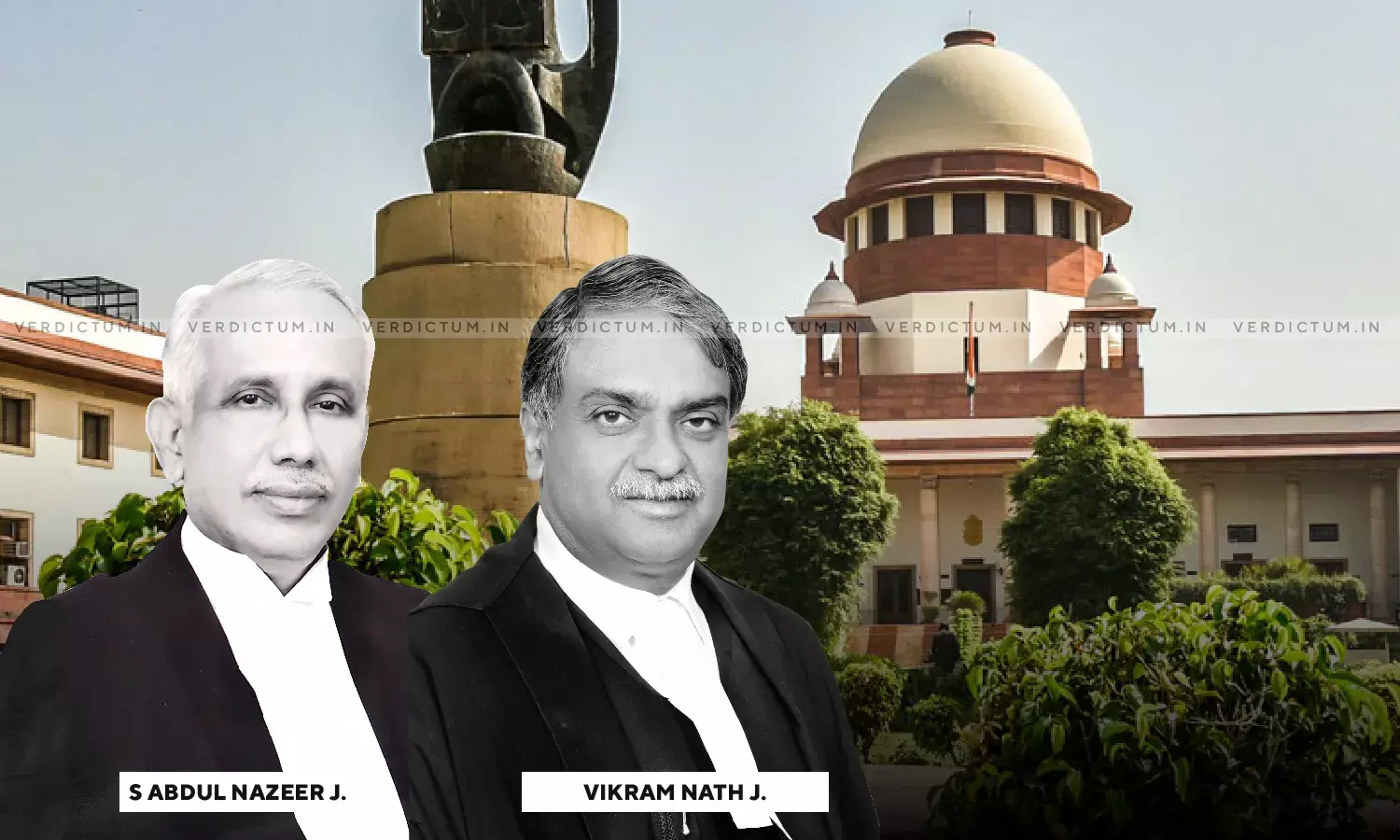Property Dispute Of 1964: Supreme Court Remits Matter Back To High Court For Fresh Disposal
The Supreme Court has remitted a property dispute case of 1964 between Farooqi Begum and State of Uttar Pradesh back to the Allahabad High Court for a fresh decision.
The Bench of Justice S. Abdul Nazeer and Justice Vikram Nath observed that the High Court had failed to take into consideration relevant material and held that it should have carefully scrutinized the evidence available on record.
A suit was instituted by the State of UP for declaration, possession, and damages with respect to land situated in Rampur District.
According to the plaint averments, the grove was a rent-free grant of one Farooqi Begum long before the merger of Rampur State. It was submitted that the same was granted by Nawab Hamid Ali Khan to his different wives and was liable to resumption at the pleasure of the ruler of erstwhile Rampur State.
It was further submitted that the possession of the same was taken over by the State Authorities soon after the resumption. It was alleged that the defendant and her Karpoons through the collusion of the revenue officers had managed to get her name continued in the Patwari's record.
The State of U.P. claimed that it took legal steps to get the revenue records corrected by expunging the name of the defendant but the revenue Court declined such request of the State.
Farooqi Begum, the sole defendant, filed the written statement denying the plaint allegations except that the proceedings before the revenue Courts culminated in her favor.
The Trial Court decreed the suit in 1966 however the judgment of the Trial Court was set aside and the matter remanded back to the Trial Court after the defendant had preferred an appeal.
In 1973 the Trial Court again decreed the suit. Aggrieved by the same, the defendant preferred the Second Appeal before the High Court which came to be dismissed.
Hence the defendant moved Supreme Court.
Senior Advocate Nitya Ramakrishnan, appeared for the appellants (Farooqi Begum (D) By Lrs.) whereas Advocate Tanmaya Agarwal appeared for the State.
It was submitted on behalf of the appellants that inadmissible evidence was relied upon by the lower Courts and that there was no evidence to support the claims of the state of UP.
On the other hand counsel for the state argued that all the three Courts had dealt with all the specific issues framed and had recorded their findings after due consideration of the material placed by both sides.
The Court observed that there wasn't any order of the Revenue Court that was filed to show that the said resumption of the grant had been incorporated in the revenue records.
The Court also noted that there were doubts about the veracity of the entries in the Muafiat register and in particular the entry relating to the resumption. The Court noted that apart from filing the said register no other evidence was led by the state of UP to prove the resumption of the grant.
"It is thus apparent that plaintiffrespondent led no evidence to establish that it was throughout in possession since 1930 after the resumption. The courts below have proceeded on assumptions and presumptions to hold in favour of the State on the question of possession and to decree the suit.", the Court observed.
The Court noted that the appellants had not only filed documentary evidence to prove their continuous possession but also oral evidence, which was ignored.
The Court further noted that the Courts below had placed reliance upon a letter of the defendantappellant of 1954 to draw the presumption that the defendant appellant was not in possession in 1954.
The Court observed that the signatures on the said letter were denied by the defendant appellant.
Therefore the Court held "We have given our anxious consideration to the arguments advanced and are of the view that the High Court fell in error in not taking into consideration the relevant material and instead relying upon inadmissible evidence or evidence which had no bearing to the findings. Even the burden had been wrongly placed on the defendantappellant. Further, the High Court ought to have carefully scrutinized the evidence available on record and only thereafter arrived at a conclusion."
Accordingly, the Court set aside the impugned judgment of the High Court and remitted the matter back to the High Court to decide it afresh. The Court also requested the High Court to decide the appeal as expeditiously as possible.
Click here to read/download the Judgment













